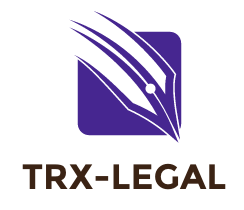The recognition and enforcement of american judgments in France is still regulated by case law.
Although there are general sets of rules applicable to the enforcement process, French courts analyze each rule on a case per case basis.
Originally, French Courts used to review American Judgments by almost rendering a new one since there were no international treaties between France and the United-States regarding this matter.
Since 2007 (Cour de cassation Februray 20th, 2007 Cornelissen case), French Courts only verify three conditions to recognize American Judgments in France. The French judge will verify:
- the indirect jurisdiction of the U.S judge, based on the connection between the dispute and the judge,
- the conformity to the procedural and substantial French international public policy,
- the absence of fraudulent forum shopping (evasion of the law),
The indirect jurisdiction test is one of the most difficult questions to address. French Courts usually consider that this condition will be met if, by French standards, the American Court has jurisdiction. For instance, American Courts will have jurisdiction if the case is brought before a Court located where the contract was performed or where the products were manufactured. In family matters, American Courts will have jurisdiction if the spouses live within the judicial district of the Court dealing with the case. Knowing that the Judgment may have to be enforced in France, the claimant has to make sure that the dispute is filed before the proper Court.
The conformity to the procedural and substantial French international public policy test is used to ban all Judgments which have an effect contrary to France’s most important principles. For instance, French Courts will verify that due process has been respected to ensure the conformity to French procedural policy. As for substantial international public policy, the Cour de cassation (French Supreme Court) ruled in a 2010 case that a American Judgment awarding punitive damages was contrary to public policy because the amount was disproportionate with regard to the damage sustained. Usually, this condition involves highly debated social, ethical or economic issues such as international adoptions by homosexual couples, surrogate motherhood and even some class action decisions.
Fraudulent forum shopping (fraude à la loi) is the main reason why French Courts refuse to recognize a foreign Judgment. It is defined as the act of manipulating conflict of law rules in order to evade the application of an unfavorable law to the benefit of another. The most frequent example is that of a person moving to another country to benefit from the local law instead of the law from its originating country. French Courts have had to deal many times with fraudulent forum shopping. A recent case of December 17th, 2014 showed a perfect example. In this case, a married couple with children lived in France and recently signed a lease on an apartment in Paris. The wife was American and the husband was French. The wife decided to go on vacation in the U.S with the children and took the opportunity to file for divorce. She came back to France for a couple of weeks and then returned to the U.S to continue with the divorce. The Cour de cassation ruled that the wifes’ actions were fraudulent because she made the U.S court believe that she was living in Minnesota so that the court would apply local law instead of French law.
If the Judgment meets these conditions, it will be possible to enforce it on French territory. It is mandatory to hire a French attorney for the recognition and enforcement procedure since the proceedings will take place before the Tribunal Judiciaire.
The Hague Convention of July 2nd 2019 on the Recognition and Enforcement of Foreign Judgments in Civil or Commercial Matters will eventually modify the set of applicable rules but as of May 2024 it still hasn’t been ratified by the United States.
As a French-American attorney with extensive experience in recognition and enforcement proceedings, I can help you optimize your chances of success. If you need advice on how to proceed, you can use the Contact form at the bottom of the home page.
